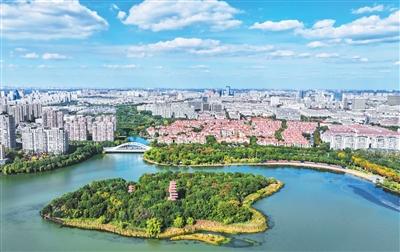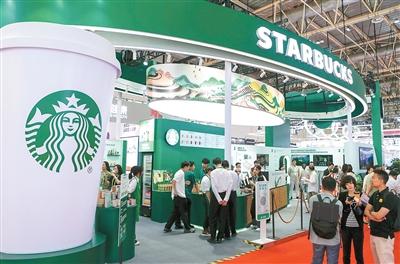




- BRNN
- BRI News
- BRNN News
- Database
Official Documents Polices and Regulations
Inter-government Documents International Cooperation BRI Countries
Business Guide Economic Data BRI Data
Trade
Investment Projects Latest projects
Cases - Content Pool

Photo shows the beautiful scenery of Jiyang Lake Ecological Park in Zhangjiagang, a county-level city in east China's Jiangsu Province. (Photo/Shi Borong)
Counties across China are increasingly becoming priority destinations for major international brands seeking to establish a presence.
U.S. retail giant Sam's Club opened its third county-level store in China in Zhangjiagang, a county-level city administered by Suzhou, east China's Jiangsu Province, on Oct. 20.
On opening day, the store drew large crowds, with many residents browsing its selection of roughly 4,000 product categories.
The Zhangjiagang location is Sam's Club's fourth store in Suzhou. Walmart, the parent company of Sam's Club, has announced plans to open six to seven new Sam's Club stores in China annually, with a total of over 60 expected by 2026.
International hotel and coffee chains are also accelerating their expansion into county-level markets.
As county-level destinations attract increasing numbers of tourists, demand for quality accommodation is growing. Several international hotel brands are now entering these areas. In September, for example, a Home2 Suites by Hilton opened in Shitai county, east China's Anhui Province.
In the fiscal fourth quarter this year, Starbucks opened 183 new stores in China, including 47 in county-level markets. The company now operates over 8,000 stores across 1,091 county-level cities in China.
The county-level cities attracting international brands are economically advanced, densely populated and experiencing rapid consumer demand growth. These include Kunshan, Jiangyin, and Zhangjiagang in Jiangsu Province, Yiwu in east China's Zhejiang Province, and Jinjiang in southeast China's Fujian Province.
China currently has five county-level cities, each with a GDP exceeding 300 billion yuan ($42.18 billion): Kunshan, Jiangyin, Zhangjiagang, Changshu and Jinjiang. Kunshan and Jinjiang each have more than 2 million residents, Yiwu has over 1.9 million, Jiangyin has around 1.8 million, and Zhangjiagang has over 1.4 million.
In 2024, Jinjiang's total retail sales of consumer goods hit 185.1 billion yuan, up 5.5 percent year on year, the highest among all county-level cities in China. Kunshan recorded 182.18 billion yuan, up 3 percent from the previous year.

Photo shows the exhibition booth of Starbucks at the third China International Supply Chain Expo (CISCE) in Beijing. (Xinhua/Ding Hongfa)
According to the National Bureau of Statistics, the county- and township-level market accounted for 38.8 percent of total retail sales in the first three quarters of 2025. Strong market activity and steadily rising resident incomes are boosting both purchasing power and demand for higher-quality goods and services.
Yang Wenxue, an analyst at CCID Consulting under China's Ministry of Industry and Information Technology, observed that improvements in transportation, commercial infrastructure and logistics in county-level cities are providing a strong foundation for international brands to enter these markets.
With competition intensifying in first- and second-tier cities, international brands increasingly view county-level cities as new growth opportunities, said Yang.
The presence of international brands benefits county-level cities by facilitating consumption, unleashing endogenous demand, and driving investment and industrial upgrading.
For county-level cities nationwide, Yang noted that international brands also serve as replicable benchmarks, offering practical examples of how new consumption scenarios can expand into lower-tier markets and helping to upgrade the county-level consumption ecosystem.
According to a report by CCID Consulting, the number of Chinese counties with a GDP above 100 billion yuan climbed to 62 in 2024.

Tel:86-10-65363107, 86-10-65368220, 86-10-65363106